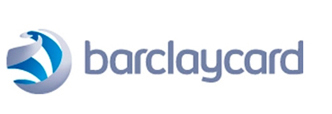 Fishlabs, the German high-end 3D studio have long been one of my favourite developers (see here for a previous post). And with the ascent of the iPhone also appears to come the rapid rise to fame for them. Today, they have released numbers on one of their latest advergames, which they did for Barclaycard. For those not familiar: Barclaycard runs a large advertising campaign where a guy slides on a water slide through the city buying stuff whilst passing through markets, shops, etc. It took me a while to understand it (even though I am one of their customers) but it is to promote their new RFID-enabled credit cards.
Fishlabs, the German high-end 3D studio have long been one of my favourite developers (see here for a previous post). And with the ascent of the iPhone also appears to come the rapid rise to fame for them. Today, they have released numbers on one of their latest advergames, which they did for Barclaycard. For those not familiar: Barclaycard runs a large advertising campaign where a guy slides on a water slide through the city buying stuff whilst passing through markets, shops, etc. It took me a while to understand it (even though I am one of their customers) but it is to promote their new RFID-enabled credit cards.
 Fishlabs produced an iPhone game for this (aptly called “Waterslide Extreme”). Interestingly, other than a Barclaycard logo on the main menu screen, I could not (yet) find any mention of the brand. Anyhow, Barclaycard seems to be super-happy as Fishlabs now has reported a whopping 2m downloads in one (!) week, which have generated 16m “engagement minutes”, presumably meaning that players engaged with the brand.
Fishlabs produced an iPhone game for this (aptly called “Waterslide Extreme”). Interestingly, other than a Barclaycard logo on the main menu screen, I could not (yet) find any mention of the brand. Anyhow, Barclaycard seems to be super-happy as Fishlabs now has reported a whopping 2m downloads in one (!) week, which have generated 16m “engagement minutes”, presumably meaning that players engaged with the brand.
The – free – game is said to top the iPhone download charts in no less than 57 countries, including all the biggies like the US (where, reportedly, 54% of iPhone and iPod Touch users reside), the UK and Germany.
I just wonder if this is such good marketing (and I am not an advocate for unwanted in-your-face advertising at all): one mention of the brand (and very subtly, too) would surely make for only the most discrete of “engagements” with the brand.
So good on Fishlabs! But advertisers might want to consider giving these things a little more thought. Imagine the potential result for the image of the Barclaycard brand if, through a somewhat more thoughtful and smarter brand treatment, all of those 2m users would actually perceive it as a fun goodie brought to them by Barclaycard. Just to think of it… 😉







